
HOME / FOR SCIENTISTS /
2018 Young Scientist Development Awardees
Host-a-Scholar Awards
The HBI Host-a-Scholar Award funds graduate students and postdoctoral fellows in Harvard neuroscience labs who invite scientists from outside the Boston area to visit their labs in order to enrich their research environments and facilitate cross-institutional collaborations in neuroscience. Six awards were made in 2018, helping to bring students, fellows and professors from all over the world—Michigan, Spain, Germany, Chile, Singapore and Korea—to labs at Harvard University, Harvard Medical School, Boston Children’s Hospital, Massachusetts General Hospital and McLean Hospital.
2018 HBI Host-a-Scholar Awardees
 Farahnaz Wick
Farahnaz Wick
Postdoctoral Researcher
Kreiman Lab, Boston Children’s Hospital
Farahnaz hosted a visiting student from the National University of Singapore. Says Wick, “We had the wonderful opportunity to work with our visiting scholar, Mengmi Zhang, for a month on an interesting research problem: understanding how humans search for a target in a natural scene (such as a german shepherd) from a single example of that target (a picture of a poodle with the category label: dog) and building a computational model that mimics human search behavior.”
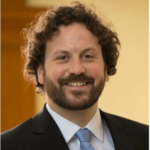 Jakob Hartmann, PhD
Jakob Hartmann, PhD
Postdoctoral Researcher
Ressler Lab, McLean Hospital
Jakob was hosting a visiting scholar, Max Poehlmann, from the lab of Mathias Schmidt at the Max Planck Institute of Psychiatry for a four-week visit in the Fall 2018 semester. The goal of this visit was to establish an animal model of chronic stress helping scientists to better understand stress resilience and susceptibility which is relevant for many psychiatric disorders.
 Aaron Kuan, PhD
Aaron Kuan, PhD
Postdoctoral Researcher
Lee Lab, Boston Children’s Hospital
Aaron is using his HBI Young Scientist Development Award to bring Professor Won-Ki Jeong of the Ulsan National Institute of Science and Technology in Korea to his lab. Professor Jeong is an expert in image processing and visualization, and is sharing his expertise to help analyze large-scale electron microscopy datasets.
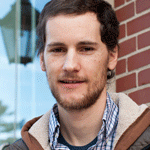 Vicente Parot
Vicente Parot
Graduate Student
Cohen Lab, Harvard University
Vicente received an HBI Young Scientist Development award to bring Dr. Carlos Sing-Long, Assistant Professor at Pontificia Universidad Católica de Chile, to Harvard for an academic visit. Vicente’s project aims to develop optical and optogenetic methods to map neuronal function across large brain regions with single-cell resolution.
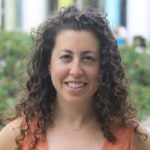 Rachel Ross, PhD
Rachel Ross, PhD
Postdoctoral Researcher
Ressler Lab, McLean Hospital
Rachel received an HBI Young Scientist Development award to bring Dr. Christian Burgess to Harvard to help with an ongoing project. Said Ross: “I have been building a piece of equipment that makes this work possible, and cost-effective, and Christian’s technical help and advice has been invaluable. This technology, called fiber photometry, provides an approach that allows for bulk calcium-dependent activity recording of genetically identified neurons in behaving mice.”
 Alberto Serrano-Pozo, PhD
Alberto Serrano-Pozo, PhD
Postdoctoral Researcher
Hyman Lab, Massachusetts General Hospital
Alberto’s research focuses on the role of astrocytes in the pathophysiology of Alzheimer’s disease. He has applied the HBI Young Scientist Development award to sponsoring Clara Munoz-Castro from the Universidad de Sevilla and Adnan Hammad from the University of Cambridge to work on his Alzheimer’s research project.
Travel Awards
The HBI Young Scientist Travel Award funds graduate students and postdoctoral fellows in Harvard neuroscience labs who seek advanced training in their research area through courses, workshops or small research conferences offered outside the Boston area. The award also supports students or fellows who wish to take advantage of informal training opportunities offered by collaborator labs at universities or research institutes outside of Harvard. Forty-six awards were made in 2018, supporting travel to a diverse array of course and conference opportunities covering molecular and cellular, developmental, systems and computational neuroscience—as well as visits to collaborator labs located across the US, as well as the UK, Italy, Netherlands and Japan.
2018 HBI Young Scientist Travel Awardees - Courses
 Leena Ali Ibrahim Marosh, PhD
Leena Ali Ibrahim Marosh, PhD
Postdoctoral fellow
Fishell Lab, Harvard Medical School
Leena’s work is focused on deciphering how the caudal ganglionic eminence (CGE) derived interneurons, i.e layer 1 and VIP interneurons in the neocortex are integrated into the circuitry during development. She applied her award to enroll in the July 2018 Cold Spring Harbor “Imaging Structure and Function in the Nervous System” course.
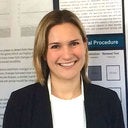 Lauren Anderson, PhD
Lauren Anderson, PhD
Postdoctoral Fellow
Berezovska Lab, Massachusetts General Hospital
Lauren investigates the cellular and molecular mechanisms of Alzheimer’s disease, specifically the role of the protein presenilin-1 (PS1) in modulating amyloid beta production and Alzheimer’s disease pathology. She applied her award to attend the Cold Spring Harbor “Advanced Techniques in Molecular Neuroscience” course held from June 29th to July 15th. This CSHL course gave her the opportunity to learn a variety of news skills and new insights on how to incorporate what she learned at CSHL into her current projects.
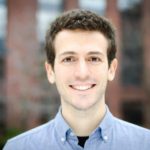 Vassilis Bitsikas, PhD
Vassilis Bitsikas, PhD
Postdoctoral Fellow
Schier Lab, Harvard University
Vassilis’ research focuses on the evolution and regulation of sleep behavior across vertebrates. More specifically he makes extensive use of neuronal activity reporters, electrophysiology, and behavioral tracking in fish and mice. He will be applying his Young Scientist Travel Award to travel to the computational neuroscience course offered by either FENS or NYU Shanghai.
 Sonia Kim
Sonia Kim
Graduate Student
Walsh Lab, Boston Children’s Hospital
Sonia is at the dissertation research stage of her program and studies the spatial cell lineage analysis in the human brain using somatic mutations. She used her award to participate in the June/ July 2018 Cold Spring Harbor “Single Cell Analysis” course.
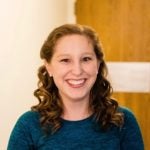 Elizabeth Lamkin Cebul
Elizabeth Lamkin Cebul
Graduate Student
Heiman Lab, Harvard Medical School
Elizabeth studies C. elegans to identify the mechanisms by which neurons and glia assemble precise contacts with each other during development. She used her award to attend the April 2018 Cold Spring Harbor “Intensive Quantitative Imaging” course. This course gave her the tools to make informed choices about the best imaging modality and analysis pipeline for experiments.
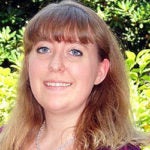 Stephanie Maddox, PhD
Stephanie Maddox, PhD
Postdoctoral Fellow
Ressler Lab, McLean Hospital
Stephanie’s research employs a combination of behavioral, pharmacological, and molecular manipulations to uncover the neurobiological underpinnings of fear memory formation and those mechanisms which are also critical for the alleviation or extinction of these memories. She applied her award to enroll in the June/July 2018 Cold Spring Harbor “Advanced Techniques in Molecular Neuroscience” course.
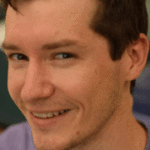 Jesse Marshall, PhD
Jesse Marshall, PhD
Postdoctoral Fellow
Olveczky Lab, Harvard University
Jesse is interested in understanding the computational principles underlying motor sequence learning — how the neuronal networks supporting motor learning are engaged and reconfigured to turn stilted movements into fluid and stereotyped motor sequences. He applied his funds to travel to Aspen, Colorado to enroll in the June 2018 Physics of Behavior Workshop at the Aspen Center for Physics.
 Joseph Park, PhD
Joseph Park, PhD
Postdoctoral Fellow
Tanzi Lab and Kim Lab, Massachusetts General Hospital
Joseph applied his award to enroll in the June/July 2018 Cold Spring Harbor “Single Cell Analysis” course in order to better understand fundamental statistical principles underlying analytic methods this past June and July. These comprehensive skills will add a new dimension in the drug development pathway analysis of Alzheimer’s disease.
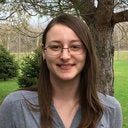 Rebecca Senft
Rebecca Senft
Graduate Student
Dymecki Lab, Harvard Medical School
Rebecca studies the role of serotonin neurons in modulating susceptibility versus resilience to seizures and seizure-induced cellular reorganization in the hippocampus. She applied her award to enroll in the July/August 2018 “Stereotaxic Surgery in the Laboratory Mouse” workshop at the Jackson Labs to better understand stereotaxic injections and EEG monitoring.
 Hannah Twarkowski, PhD
Hannah Twarkowski, PhD
Postdoctoral Fellow
Sahay Lab, Massachusetts General Hospital
Hannah’s research focuses on the neuronal mechanisms that govern the precision of remote memories in the adult and aging. She applied her Young Scientist Travel Award to enroll in the November 2018 ICLM/MCCS Miniscope workshop at the University of California, San Diego. She applied these computational skills to gain deeper insight into her data sets.
2018 HBI Young Scientist Travel Awardees - Conferences
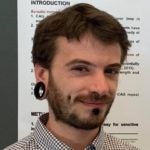 Hubert Aviolat, PhD
Hubert Aviolat, PhD
Postdoctoral Researcher
DiFiglia Lab, Massachusetts General Hospital
Hubert is a second year fellow studying Huntington’s Disease in the lab of Marian DiFiglia. He used his award to attend the February 2019 Annual HD Therapeutics Conference in Palm Springs, California.
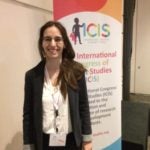 Laurie Bayet, PhD
Laurie Bayet, PhD
Postdoctoral Researcher
Nelson Lab, Boston Children’s Hospital
Laurie applied her award to attend the the biennial conference of International Congress of Infant Studies (ICIS) in Philadelphia in July 2018, an international conference focusing on infancy research. She organized and chaired a symposia on threat perception in early development and combined behavioral and neuroimaging perspectives.
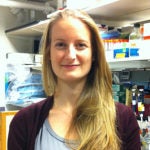 Gabriella Boulting, PhD
Gabriella Boulting, PhD
Postdoctoral Researcher
Greenberg Lab, Harvard Medical School
Gabriella will apply her experiences in RNAseq and ChIPseq analysis of neuronal activity-regulated genes and non-coding genome sequences toward understanding the unique signatures that specific subtypes of human neurons may exhibit. To help her achieve that end, she will apply her award to attend the 2018 Allen Frontiers Symposium in Seattle, WA.
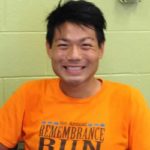 Brian Chow
Brian Chow
Graduate Student
Gu Lab, Harvard Medical School
Brian uses two-photo microscopy to image the brains of living and awake mice to better understand neurovascular coupling. He used his award to attend the July 2018 Gordon Conference: “Endothelial Cell Phenotypes in Health and Disease” in order to enrich his understanding in endothelial cell heterogeneity.
 Juliet Davidow, PhD
Juliet Davidow, PhD
Postdoctoral Researcher
Somerville Lab, Harvard University
Juliet studies how healthy changes in the brain during adolescence might uniquely position adolescents to excel at some kinds of learning – but also present challenges in how they can flexibly use what they know to make good choices in situations that they haven’t encountered before. She used her award to attend the August 2018 Flux International Congress Annual meeting in Berlin, Germany.
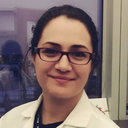 Didem Demirbas, PhD
Didem Demirbas, PhD
Postdoctoral Researcher
Berry Lab, Boston Children’s Hospital
Didem is working on modeling inborn errors of metabolism using induced pluripotent stem (iPS) cells and differentiated neurons, focusing on rare metabolic disorders, galactosemia and phenylketonuria. She will apply her award to attend the September 2018 Company of Biologists, Development Journal Meeting “From Cells to Human Development” in Surrey, England.
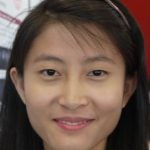 Linlin Fan
Linlin Fan
Graduate Student
Cohen Lab, Harvard University
Linlin is developing all-optical methods to dissect excitation and inhibition in cortical neurons in awake mice. She is applying the method to study how cortical layer 1 neurons integrate bottom-up sensory inputs and top-down signals. She applied her award to attend the July 2018 Gordon Research Conference on Molecular and Cellular Neurobiology in Hong Kong.
 Xiao Han, PhD
Xiao Han, PhD
Postdoctoral Fellow
Gray Lab, Harvard Medical School
Xiao’s current research interest is exploring experience-dependent axonal myelination using a multidisciplinary approach, ranging from behavioral to genetic molecular analysis. She applied her award to attend the March 2018 Gordon Conference “Myelin Through the Ages: Evolution, Development, Degeneration and Disease” in Ventura, CA.
 Mohammad Rashedul Islam, PhD
Mohammad Rashedul Islam, PhD
Postdoctoral Researcher
Wrann Lab, Massachusetts General Hospital
Mohammad is researching the molecular mechanism of exercise effect on brain, specifically how exercise improves spatial learning and memory. He applied his award to attend the July 2018 Gordon Research conference on Neural Development in Newport, Rhode Island.
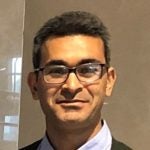 Mehdi Jorfi, PhD
Mehdi Jorfi, PhD
Postdoctoral Researcher
Irimia Lab/Kim Lab, Massachusetts General Hospital
Mehdi is researching Alzheimer’s disease modeling in 3D organoid/spheroid systems derived from stem cells. He used his award to attend the March 2019 International Conference on Alzheimer’s & Parkinson’s Diseases in Lisbon, Portugal.
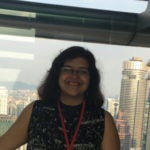 Annie Kathuria, PhD
Annie Kathuria, PhD
Postdoctoral Fellow
Karmacharya Lab, Massachusetts General Hospital
Annie’s research focuses on developing stem cell-based models to study the molecular and cellular basis of schizophrenia using iPSCs (induced pluripotent stem cells) generated from patients. She used her award to attend the 2018 Molecular Psychiatry Annual Conference in Kauai, Hawaii.
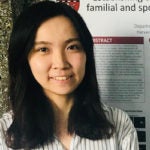 Hyo Lee
Hyo Lee
Graduate Student
Young-Pearse Lab, Brigham and Women’s Hospital
Hyo is a second year graduate student studying the mechanisms underlying Alzheimer’s Disease. She used her award to attend the August 2018 Gordon Research Conference: Neurobiology of Brain Disorder in Castelldefels, Spain.
 Lauren Mifflin
Lauren Mifflin
Graduate Student
Yuan Lab, Harvard Medical School
Lauren is a graduate student in the Biological and Biomedical Sciences (BBS) Program studying the role of neuroinflammation in driving neurodegenerative diseases, including Alzheimer’s Disease and ALS. She used her award to attend the June 2018 Keystone Symposia “New Frontiers in Neuroinflammation: What Happens When CNS and Periphery Meet?” in Keystone, Colorado.
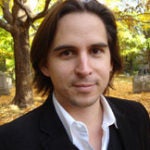 Benjamin Okaty, PhD
Benjamin Okaty, PhD
Postdoctoral Researcher
Dymecki Lab, Harvard Medical School
Benjamin specializes in functional genomics and neuron physiology focusing on characterizing the molecular and functional heterogeneity of serotonin (5-HT) producing neurons – from early postnatal development to adulthood – and identifying the specific roles that 5-HT neuron subtypes play in regulating a variety of behavioral and physiological functions. He used his award to attend the June 2018 Meeting of the International Society for Serotonin Research in Cork, Ireland.
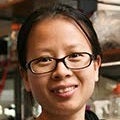 Yirong Peng, PhD
Yirong Peng, PhD
Postdoctoral Researcher
Sanes Lab, Harvard University
Yirong is researching the molecular and cellular architecture of the fovea, an important minuscule pit in the center of retina, which is only found in primates, but not in other mammals. She applied her award to attend the June 2018 FASEB-Retinal Neurobiology and Visual Processing meeting in Olean, NY.
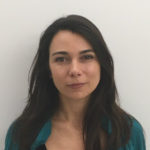 Ana Pereira, PhD
Ana Pereira, PhD
Postdoctoral Researcher
Zhang Lab, Harvard University
Ana is researching how maternal consumption of different food sources affects the food choice of their progeny. She applied her award to attend the October 2018 Epigenetics of Nervous System conference at Karolinska Institute in Stockholm, Sweden.
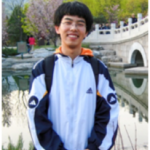 Chen Ran, Phd
Chen Ran, Phd
Postdoctoral Researcher
Liberles Lab, Harvard Medical School
Chen is a first year Postdoctoral researcher studying viscerosensation, i.e., how the brain senses the status of the heart, lung, gut and other internal organs. He applied his award to attend the March 2019 Keystone Symposia on Mammalian Sensory Systems in Seattle Washington.
 Jessica Sagers
Jessica Sagers
Graduate Student
Stankovic Lab, Massachusetts Ear and Eye Infirmary
Jessica’s research focuses on identifying and testing drug treatments for vestibular schwannoma (VS); the fourth most common intracranial tumor. She used her award to attend the July 2018 Gordon Conference on Auditory Systems in Smithfield, Rhode Island.
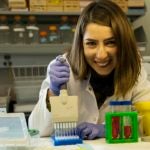 Asli Sahin, PhD
Asli Sahin, PhD
Postdoctoral Researcher
Albers Lab, Massachusetts General Hospital
Asli studies how alterations in cytoplasmic RNA repertoire, especially extremely-stable double-stranded RNA (dsRNA)-mediated inflammation, contribute to the disease state. She used her award to attend two June 2018 Keystone Symposia: Advances in Neurodegenerative Disease Research and Therapy, and the New Frontiers in Neuroinflammation: What Happens When CNS and Periphery Meet? in Keystone, Colorado.
 Monica Thanawala, PhD
Monica Thanawala, PhD
Postdoctoral Researcher
Zhuang Lab, Harvard University
Monica uses super-resolution imaging techniques to uncover the nanoscale molecular structures that enable synaptic specification and dynamics in neural systems. She will use her funds to attend the the 2019 Frontiers in Neurophotonics (FINS) conference in Quebec City, Quebec.
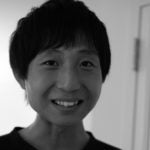 Qingbo Wang
Qingbo Wang
Graduate Student
MacArthur Lab, Massachusetts General Hospital
Qingbo is researching how to identify non-coding genetic variants that may play key roles in rare mendelian diseases. He will used funds to attend the November 2018 Keystone Symposia “From Rare to Care: Discovery, Modeling and Translation of Rare Diseases” in Vienna, Austria.
2018 HBI Young Scientist Travel Awardees - Lab Visits
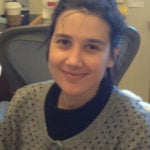 Susana da Silva, PhD
Susana da Silva, PhD
Postdoctoral Researcher
Cepko Lab, Harvard Medical School
Susana’s research is focused on the development of specialized retinal areas responsible for high acuity vision, such as the human fovea. She is applying her funds to to visit the Lowy Medical Research Institute in La Jolla, California, directed by Dr. Martin Friedlander. She will work with Dr. Kevin Eade, who is currently growing human retinoids, to learn how to work with such cultures.
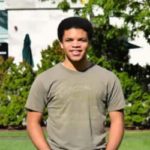 Xavier du Maine
Xavier du Maine
Graduate Student
Gu Lab, Harvard Medical School
Xavier is a third year graduate student studying he molecular and cellular mechanisms underlying the formation and maintenance of the blood-brain barrier (BBB). He will use his funds to travel to the April 2019 Cold Spring Harbor Blood Brain Barrier meeting.
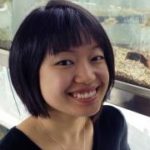 Caroline Hu, PhD
Caroline Hu, PhD
Postdoctoral Researcher
Hoekstra Lab, Harvard University
Caroline studies how natural selection modifies neural circuits in order to produce new or more elaborate behavior; focusing on the burrowing behavior of wild mice. She applied her award to travel to the lab of Adam Hantman at the Janelia Research campus to train in surgery techniques and viral transfection.
 Minsuk Hyun
Minsuk Hyun
Graduate Stuent
Sabatini Lab, Harvard Medical School
Minsuk is interested in understanding how one’s position in social hierarchy tightly controls decision making. As a model system, he studies social-rank dependent territorial marking behavior in male mice. He applied his award to study in the lab of Dr. Gonzalo de Polavieja at Champalimaud Center for the Unknown in Lisbon, Portugal in November 2018.
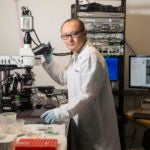 Changliang Liu, PhD
Changliang Liu, PhD
Postdoctoral Researcher
Kaeser Lab, Harvard Medical School
Changliang Liu studies the mechanisms of dopamine secretion and its affect on degenerative diseases such as Parkinson’s. He applied his award to study in the lab of James Surmeier at Northwestern University in January/February 2019.
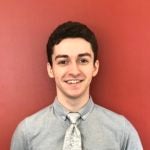 Jasper Maniates-Selvin
Jasper Maniates-Selvin
Graduate Student
Lee Lab, Boston Children’s Hospital
Jasper is a third year graduate student studying how the nervous system controls movement. He applied his award to travel to the University of Washington to spend a week with his collaborators in John Tuhill’s lab, who study motor control using techniques that complement Jasper’s approaches. The trip allowed Jasper and his collaborators see one another’s techniques firsthand, which helped them plan out collaborative experiments to perform in the coming years.
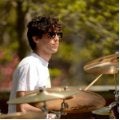 Javier Alejandro Masís
Javier Alejandro Masís
Graduate Student
Cox Lab, Harvard University
Javier is a fifth year graduate student studying the mechanisms governing visual object recognition in rats. He applied his award to travel to the lab of Christopher Summerfield at Oxford University where he and his collaborators are working on a model for how rats might strategically manage their time in order to learn how to more efficiently solve the speed-accuracy trade-off.
 Hrag Pailian
Hrag Pailian
Postdoctoral Researcher
Vision Sciences Laboratory, Harvard University
Hrag studies issues relating to the visual working memory system. More specifically, he uses non-invasive brain stimulation (NIBS) to enhance individuals’ storage and manipulation capacities. He applied is award to Travel to Italy in September 2018 to train in the lab of Lorella Battelli at the University of Trento and to attend the European Conference on Visual Perception in Trieste.
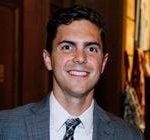 Kevin Sitek
Kevin Sitek
Graduate Student
Gabrieli Lab, MIT/Massachusetts General Hospital
Kevin’s research aims to expand our knowledge of the structure and function of the human subcortical auditory system with magnetic resonance imaging (MRI). He applied his award to travel to the lab of Federico De Martino at Masstricht University where he used advanced fMRI techniques to study the subcortical auditory system.
 Yuyu Song
Yuyu Song
Postdoctoral Researcher
Mitchison Lab, Harvard Medical School
Yuyu is working on multi-faceted research projects related to neurodegenerative diseases, with a focus on Amyotrophic Lateral Sclerosis (ALS) and Alzheimer’s Diseases (AD). She applied her funds to travel to the Marine Biology Laboratory, affiliated with the University of Chicago to conduct experiments and gain new skills which will help transition to the role of PI.
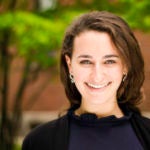 Jenna Sternberg, PhD
Jenna Sternberg, PhD
Postdoctoral Researcher
Schier Lab, Harvard University
Jenna studies on how an animal’s physiological state is detected by the central nervous system and how these signals are translated into brain activity in behavior. She applied part of her award to travel to Japan to study in the Kawakami Lab at the National Institute of Genetics and a part of her award to Singapore for the May 2018 Gastronauts Meeting.
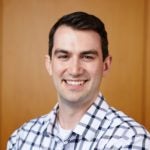 Jordan VerPlank, PhD
Jordan VerPlank, PhD
Postdoctoral Researcher
Goldberg Lab, Harvard Medical School
Jordan is studying the regulation of protein breakdown by the ubiquitin proteasome system (UPS) and exploring whether stimulating degradation by this system has therapeutic potential to combat neurodegenerative diseases. He applied his award to travel to the lab of David Rubinsztein at the Cambridge Institute for Medical Research in the UK where he learned a novel research technique and gained more experience working with mouse and zebrafish models of various neurodegenerative diseases.
Community Resource Awards
The HBI Community Resource Award funds graduate students, fellows or lab staff who seek to develop community resources that improve the efficiency of neuroscience research, education or outreach efforts at Harvard – promoting teamwork across labs or campus organizations in new ways. We consider any resource, virtual or material, that can be developed for $5000 or less and maintained long term by the sponsoring lab or campus group. Three awards were made in 2018, supporting the purchase of a 3D printer, virtual reality software for studying brain anatomy, and the outreach work of students and fellows who run a scientific journal for middle and high school students.
PhD students, postdocs or lab staff interested in applying for this grant may send an inquiry to HBI_Grants@harvard.edu at any time.
2018 HBI Community Resource Awardees
 Jasper Maniates-Selvin
Jasper Maniates-Selvin
Graduate Student
Lee Lab, Harvard Medical School
Jasper is applying his HBI Community Resource Award towards the purchase of VR visualization software. A workstation with the VR software will be made available for the Harvard neuroscience community to bring their data for visualization. Jasper will teach community members how to use the software and will organize an annual VR showcase where labs who have used this resource can present their work to the rest of the Harvard neuro community.
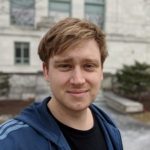 Noah Pettit
Noah Pettit
Graduate Student
Harvey Lab, Harvard Medical School
Noah was awarded funds for the purchase of a 3D printer for the Neurobiology Department at HMS. The printer will be made available to all labs in the department and primarily used for prototyping and creating small-batches of custom mechanical components. Said Noah on receiving the award: “My hope is that resources like this 3D printer will accelerate neuroscience research here at Harvard and encourage technology sharing within the broader neuroscience community.”
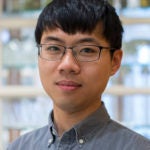 Qiyu Zhang
Qiyu Zhang
Graduate Student
Ginty Lab, Harvard Medical School
Qiyu is a graduate student in David Ginty’s lab and a member of the Journal of Emerging Investigators (JEI) staff. “The mission of JEI is to empower middle and high school students and engage them with the scientific community by reviewing and publishing their research,” Qiyu says. “We are honored to receive the HBI Community Resource Award, which will support a new manuscript submission platform and allow us to better facilitate interactions between HBI trainees and aspiring scientists throughout the world.”
